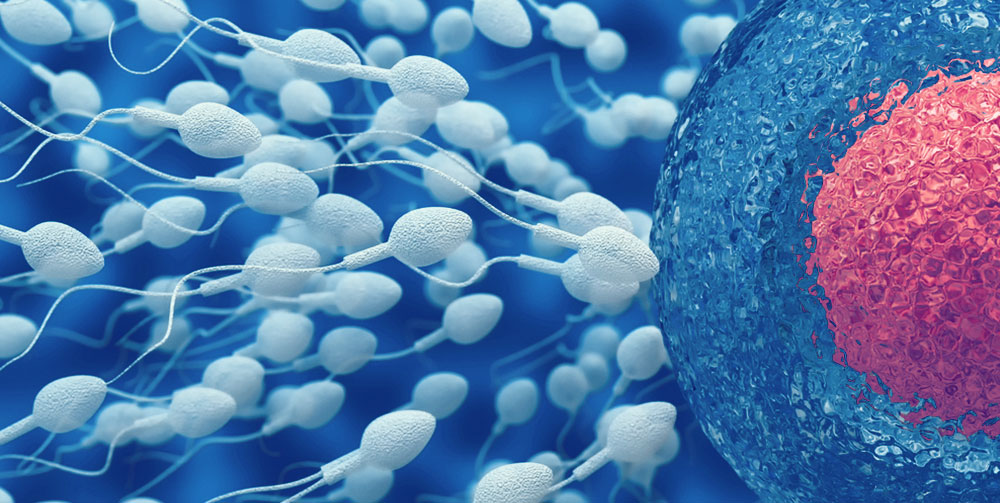Melissa Peterson ● 2 min read
Functional polymorphisms of various antioxidant genes may be beneficial diagnostic and therapeutic markers for the health of sperm and the risk of male infertility.
According to a 2015 review published in Biomed Research International, recent advances have found that functional polymorphisms in the following antioxidant genes may contribute to infertility in males:[1]
- nuclear factor erythroid 2-related factor 2 (NRF2)
- superoxide dismutase (SOD)
- glutathione S-transferase (GST)
- nitric oxide synthase (NOS)
- catalase (CAT)
- glutathione peroxidase (GPX).
These gene variations potentially affect the function of their encoded enzymes, which are active in the cellular antioxidant response to protect sperm from oxidative damage. Several studies have shown that environmental stressors and antioxidant genes can affect sperm quality, sex hormone levels, sperm chromatin stability, and sperm density and morphology.[1]
Additionally, polymorphisms in other areas may interact with the antioxidant genes increasing the risk of infertility. For example, the combination of xenobiotic metabolising enzyme polymorphisms (e.g. cytochrome P450 encoded enzymes) and certain GST variants may increase the risk of infertility.[1]
In small amounts, oxidative stress and reactive oxygen species (ROS) are a necessary part of sperm development and function, however an excess can overwhelm the antioxidant defenses. Spermatozoa are particularly vulnerable to ROS, due to large amounts of unsaturated fatty acids in their membrane and low levels of cytoplasmic antioxidant enzymes.[2]
This can affect 25% of male infertility cases with reduced sperm count, decreased motility and abnormal morphology.[2]
ROS are generated through endogenous processes, such as mitochondrial respiration and seminal leucocytes, but also from numerous environmental factors including pollution, toxins, stress and diet.[1]
Many of the enzymes encoded by the antioxidant genes require the presence of nutritional compounds to facilitate their structure and function, with the potential for a greater need when genetic polymorphisms are present. For example, intracellular and extracellular SOD is comprised of zinc and copper, while mitochondrial SOD requires manganese, CAT contains iron and GPX is dependent on selenium.[2]
Additionally the semen can utilise many other non-enzymatic antioxidants, assisting in the reduction of oxidative damage and facilitating the antioxidant enzyme function. These include glutathione, coenzyme Q10, vitamins A, C, E and B complex, chromium and carnitine.[2]
Functional polymorphisms in antioxidant genes may play a crucial role in the function of antioxidant enzymes, affecting spermatogenesis and sperm function. Therefore, researchers concluded that ‘the discovery and validation of antioxidant gene variants as genetic markers for the diagnosis and risk estimation for male infertility may facilitate the improvement of clinical approaches for this particular disorder.’[1]
References
- Yu B, Huang Z. Variations in antioxidant genes and male infertility. Biomed Res Int 2015: doi 10.1155/2015/513196 [Full Text]
- Walczak–Jedrzejowska R, Wolski JK, Slowikowska–Hilczer J. The role of oxidative stress and antioxidants in male fertility. Central European J Urology 2013;66(1):60-67. [Full Text]
DISCLAIMER:
The information provided on FX Medicine is for educational and informational purposes only. The information provided on this site is not, nor is it intended to be, a substitute for professional advice or care. Please seek the advice of a qualified health care professional in the event something you have read here raises questions or concerns regarding your health.



